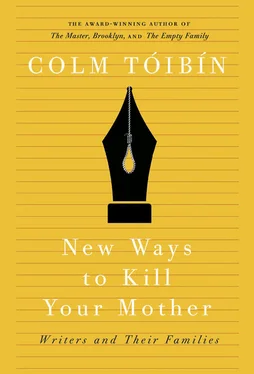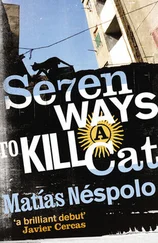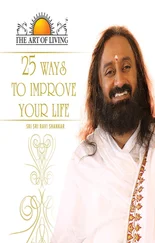Similarly, Baldwin in 1985 wrote about his own unique position and attitude in the formative years in Greenwich Village: ‘there were very few black people in the Village in those years, and of that handful, I was decidedly the most improbable.’ More than twenty years earlier he had written: ‘To become a Negro man, let alone a Negro artist, one had to make oneself up as one went along… My revenge, I decided very early, would be to achieve a power which outlasts kingdoms.’
Both men set about establishing their authority by exploring themselves and how they came to make it up as they went along, as much as by exploring the world around them. In Obama’s own mixed background he saw America; out of his own success, he saw hope and a new set of values. Out of his own childhood Baldwin produced a number of enduring literary masterpieces and out of his efforts to make sense of his own complex, playful personality and his own unique place in history he produced some of the best essays written in the twentieth century. Reading these essays and Obama’s speeches, especially the ones that are filled with inspiration but short on policy, one is struck by the connection between them, two men remaking the world against all the odds in their own likeness, not afraid to ask, when faced with the future of America as represented by its children, using Baldwin’s wonderful phrase, questions that are alien to most politicians: ‘What will happen to all that beauty?’
Bailey, Blake, Cheever: A Life (London, 2009)
Bair, Deirdre, Samuel Beckett (London, 1978)
Baldwin, James, Collected Essays (New York, 1998)
Baldwin, James, Early Novels and Stories (New York, 1998)
Baldwin, James, The Cross of Redemption: Uncollected Writings (New York, 2010)
Barry, Sebastian, Hinterland (London, 2002)
Barry, Sebastian, The Pinkening Boy: New Poems (Dublin, 2004)
Butler, Marilyn, Jane Austen and the War of Ideas (Oxford, 1998)
Carolan, Stuart, Defender of the Faith (London, 2004)
Carpenter, Andrew (ed.), My Uncle John: Edward Stephens’s Life of J. M. Synge (Oxford, 1994)
Carr, Marina, Plays 2 (London, 2009)
Cheever, John, Collected Stories and Other Writings John Cheever (New York, 2009)
Cheever, John, Complete Novels (New York, 2009)
Christiansen, Rupert, The Complete Books of Aunts (London, 2006)
Crane, Hart, Complete Poems and Selected Letters (New York, 2006)
Cronin, Anthony, Samuel Beckett: The Last Modernist (London, 1997)
Di Giovanni, Norman Thomas, The Lesson of the Master: On Borges and his Work (New York, 2004)
Doyle, Roddy, Rory & Ita (London, 2002)
Ellmann, Richard, Yeats: The Man and the Masks (London, 1988)
Fehsenfeld, Martha Dow, and Lois More Overbeck (eds.), The Letters of Samuel Beckett: Volume I, 1929–1940 (Cambridge, 2009)
Foster, R. F., W. B. Yeats, A Life I: The Apprentice Mage (Oxford, 1997)
Foster, R. F., W. B. Yeats: A Life II: The Arch-Poet (Oxford, 2003)
Greene, David H., and Edward M. Stephens, J. M. Synge 1877–1909 (London, 1959)
Grene, Nicholas (ed.), Interpreting Synge: Essays from the Synge Summer School 1991–2000 (Dublin, 2000)
Hamilton, Hugo, The Speckled People (London, 2003)
Iglesias, Jovina, and Silvia Renee Arias, Los Bioy (Barcelona, 2003)
Kiberd, Declan, Synge and the Irish Language (London, 1979)
Knowlson, James, Samuel Beckett: Damned to Fame (London, 1996)
Kurzke, Hermann, Thomas Mann: Life as a Work of Art (Princeton, 2002)
Lee, J. J., Ireland 1912–1985: Politics and Society (London, 1989)
MacGreevy, Thomas, Jack B. Yeats (Dublin, 1945)
Maddox, Brenda, George’s Ghosts (London, 1999)
Manguel, Alberto, A History of Reading (London, 1997)
Manguel, Alberto, With Borges (London, 2006)
Mann, Klaus, Mephisto (London, 1995)
Mann, Klaus, The Turning Point (London, 1987)
Mann, Thomas, Diaries 1918–1939 (New York, 1982)
María Esther Vázquez, Borges: Esplendor y Derrota (Barcelona, 1999)
McCormack, W. J., Fool of the Family: A Life of J. M. Synge (London, 2000)
Murphy, Gerald, Take Me Away (London, 2004)
Murphy, William M., Family Secrets: William Butler Yeats and his Relatives (Dublin,1995)
Murphy, William M., Prodigal Father: A Biography of John Butler Yeats (Cornell,1979)
Naipaul, V. S., Letters Between a Father and Son (London, 1999)
Naipaul, V. S., The Return of Eva Peron (London, 1980)
Obama, Barack, Dreams from My Father (New York, 2007)
Perry, Ruth, Novel Relations: The Transformation of Kinship in English Literature and Culture 1748–1818 (Cambridge, 2004)
Saddlemyer, Ann (ed.), Letters to Molly: John Millington Synge to Maire O Neill (Harvard, 1971)
Saddlemyer, Ann, Becoming George: The Life of Mrs W. B. Yeats (Oxford, 2002)
Sampson, Denis, Brian Moore: The Chameleon Novelist (London, 1998)
Tanner, Tony, Jane Austen (London, 1986)
Theroux, Paul, The Old Patagonian Express (London, 1979)
Tomalin, Claire, Jane Austen: A Biography (London, 1997)
Trilling, Lionel, The Moral Obligation to be Intelligent (Chicago, 2008)
Uveda de Robledo, Epifanía, and Alejandro Vaccaro, El Señor Borges (Barcelona,2005)
Weiss, Andrea, In the Shadow of the Magic Mountain (Chicago, 2008)
Williams, Tennessee, Memoirs (London, 2007)
Williams, Tennessee, Notebooks (ed. Margaret Bradham Thornton, Yale, 2006)
Williamson, Edwin, Borges: A Life (London, 2004)
‘Jane Austen and the Death of the Mother’ was given as the Troy Lecture at the University of Massachusetts at Amherst in December 2010 and a version of it later published in the London Review of Books ; ‘W. B. Yeats: New Ways to Kill Your Father’ was first given as a lecture at the Yeats Summer School in Sligo in 2004 and subsequently published in the Dublin Review ; ‘Willie and George’ was first published in the London Review of Books ; ‘New Ways to Kill Your Mother: Synge and his Family’ was first published in Synge: A Celebration , edited by Colm Tóibín; ‘Beckett Meets His Afflicted Mother’ and ‘Brian Moore: Out of Ireland Have I Come, Great Hatred, Little Room’ were first published in the London Review of Books ; ‘Sebastian Barry’s Fatherland’ was first published in Out of History: Essays on the Writings of Sebastian Barry , edited by Christina Hunt Mahony; ‘Roddy Doyle and Hugo Hamilton: The Dialect of the Tribe’ was first published in the New York Review of Books ; ‘Thomas Mann: New Ways to Spoil Your Children’ and ‘Borges: A Father in his Shadow’ were first published in the London Review of Books ; ‘Hart Crane: Escape from Home’ and ‘Tennessee Williams and the Ghost of Rose’ were first published in the New York Review of Books ; ‘John Cheever: New Ways to Make Your Family’s Life a Misery’ was first published in the London Review of Books ; ‘Baldwin and “the American Confusion” was given as a lecture at Queen Mary University of London in June 2007 and later published in the Dublin Review ; ‘Baldwin and Obama: Men Without Fathers’ was first published in the New York Review of Books .
Читать дальше












